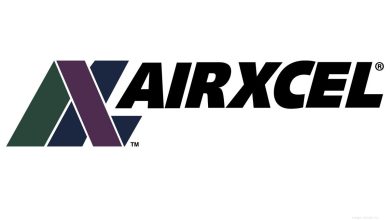American Power Systems Launches High-Output Alternators
American Power Systems, Inc. (APS) has launched an all-new, high-output alternator series providing more output across the board at both lower and upper RPM.
In addition, the increased power output at lower RPM means faster charging capability at lower speeds, including at idle.
The Ultra Performance at Idle (UPI) series is APS’ next-generation line of alternators based on their original High Performance at Idle (HPI) alternator series. The new alternators share the same weight, size and other mechanical specifications as the HPI versions but with higher output at both upper and lower ranges of the RPM output curve. This means the new alternators offer the same form and fit as HPI versions in under-the-hood configurations for all vehicles APS products currently fit.
“This is a game-changer in the ever-evolving mobile power market,” said APS President and CEO Amy Lank. “Our customers have asked for more power, and we’ve heard them loud and clear. We’re very excited to bring this to the market.”
Available in 12-, 24- and 48-volt models, the UPI series offers six different configurations ranging from 165 amps to 390 amps at output:
While the new UPI high-output alternators offer more power at both ends of the RPM spectrum, they can start producing electrical power at lower RPM, which translates to quicker battery charging. Lower turn-on RPM means that the alternator can start generating voltage earlier in the engine’s operation cycle. This early activation reduces the dependency on high RPM for effective charging, making it possible to maintain optimal battery levels even during low-speed operations, the company said.
This is especially useful for vehicles in an idling scenario (low RPM) or in city driving where vehicles often run at lower speeds. By starting power generation earlier, it also helps keep the battery charged more efficiently and reduces the risk of undercharging. This means that electrical components, like ignition and lighting, can work more reliably, improving overall vehicle performance and reducing the chances of electrical failures.
For example, the new 24-volt, 240-amp UPI alternator generates 381% more power at 2,000 alternator RPM speed in a side-by-side comparison with its 24-volt, 185-amp counterpart in the HPI series. The lower speed is an estimated average at idle or for in-town low MPH driving, the company said.
APS has been developing the Ultra Performance series for more than two years to ensure it meets the company’s threshold for superior quality and expected real-world performance. All new APS products – including the UPI alternator series – undergo a rigorous engineering process and testing to industry standards for durability. This includes testing using ISO/SAE standards, internationally agreed-upon standardized guidelines to ensure that products and services meet the highest quality and safety.
Testing helps to:
- Identify areas of improvement related to a product’s durability and reliability over time.
- Find and address endurance-related design issues before the product is released to the market.
- Ensure that the product performs as expected over the long term.
APS also uses information gleaned during testing to improve future designs and develop new products that are attractive to customers. This allows APS to stay ahead of the curve and remain competitive in its industry.
“There is a reason why APS is globally trusted,” Lank said. “We have a worldwide reputation for quality, innovation, and expertise. When our products hit the market, we feel confident in their performance because of how meticulous we are behind the scenes during their development.”
According to Lank, the company will sell both its HPI and UPI series moving forward. “This new series is an expansion of our product capabilities,” explained Lank. “It gives our customers a choice in how to supply maximum power depending on their vehicle needs.”
For more information, including technical specifications, please visit the UPI High Output Alternators Series page on the APS website.



